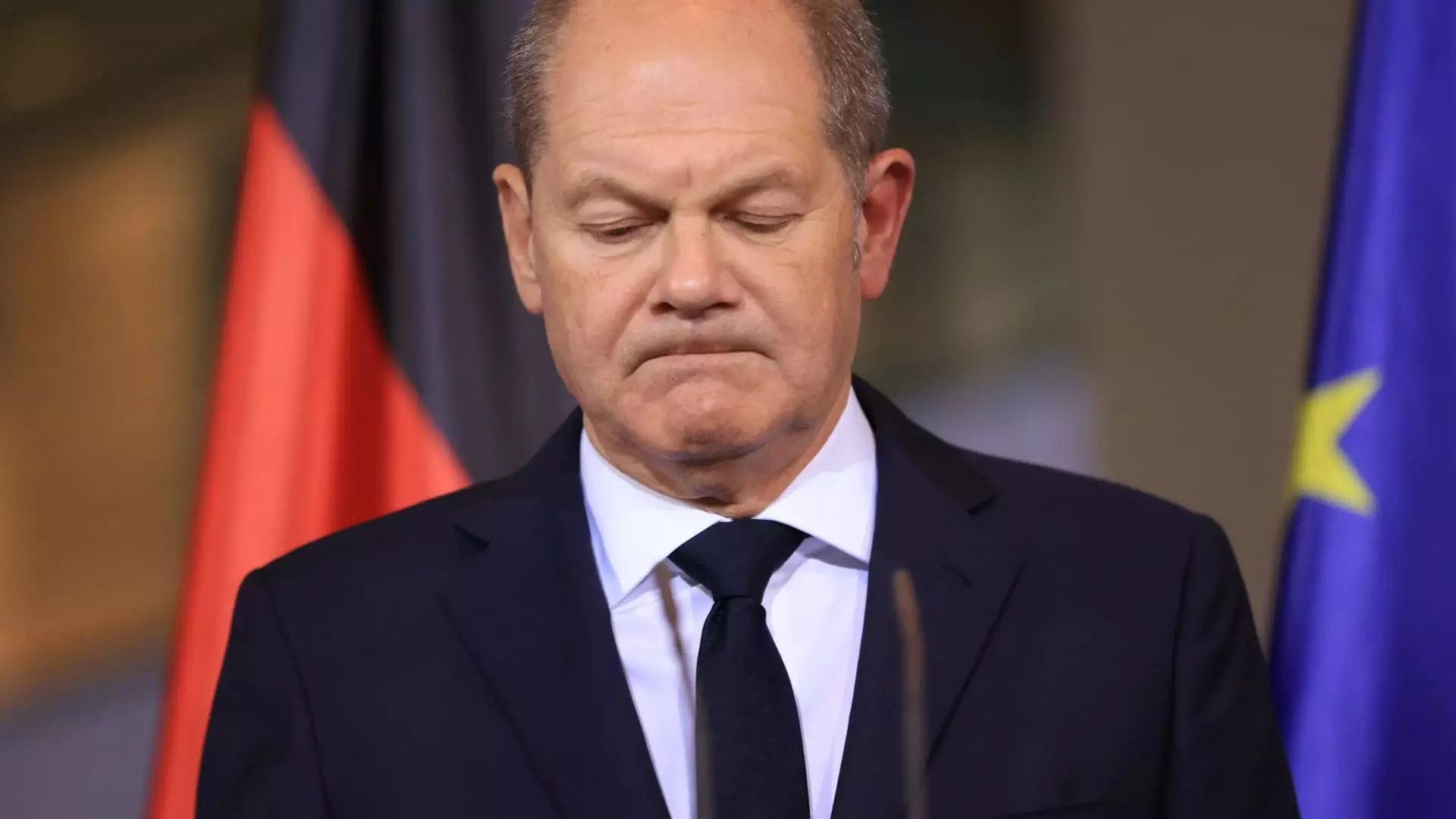The recent election of Donald Trump to the presidency of the United States has raised substantial concerns regarding its potential repercussions on the already frail German economy. While Germany narrowly avoided slipping into a technical recession, it is evident that numerous indicators continue to reflect an economy marked by stagnation and uncertainty. With preliminary data showing a slight growth of 0.2% in the third quarter after a contraction of 0.3% in the previous quarter, the outlook remains far from reassuring.
Germany’s economic landscape is currently characterized by a series of alarm bells. The German economy ministry recently announced a shift in expectations, now predicting a contraction rather than growth for the year. A recurring theme is the weakness in key economic indicators; notably, the composite Purchasing Managers’ Index (PMI) registered a slight uptick in October, yet remains entrenched in contraction territory. This paints a stark picture of an economy grappling with challenges both at home and abroad.
Moritz Schularick, president of the Kiel Institute for the World Economy, encapsulated this sentiment by warning that Trump’s presidency could signal a challenging period for Germany. With underlying structural issues in the German economy compounded by new challenges in foreign trade and security policy, the country is encountering a precarious moment. The presidency of Trump could exacerbate existing vulnerabilities, placing an additional burden on economic expansion across Europe.
Central to the concerns surrounding Trump’s election is his stance on trade. Historically, the German economy has been heavily reliant on its export sector, and any aggressive trade policies directed at imports would consequently threaten this economic pillar. Early estimates from the German statistics office Destatis indicate that the importance of the U.S. as a trading partner is increasing, with about 9.9% of German exports heading to the U.S. in 2023. With Trump hinting at the imposition of blanket tariffs ranging between 10% and 20% on numerous imports, German exporters find themselves in a precarious position.
The ifo economic institute has not shied away from pointing out the severity of potential losses if the U.S. follows through on these tariffs. Estimates suggest that Germany could suffer as much as €33 billion in economic damage, with German exports to the United States potentially shedding around 15%. Industries such as automotive and chemicals—which have historically been cornerstones of the German economy—are identified as particularly vulnerable to these potential tariffs.
In light of these developments, German officials are recognizing an urgent need for new strategies to mitigate these risks and reinforce economic stability. Lisandra Flach, director of the ifo Center for International Economics, advocates for deeper integration within the European Union’s services market, emphasizing the necessity for credible retaliatory measures against U.S. tariffs. Flach’s perspective highlights a critical point: Germany and the EU cannot remain passive as the U.S. drifts away from collaborative global practices.
Moreover, the recent turmoil within the German government only adds another layer of complexity to the situation. Chancellor Olaf Scholz’s decision to dismiss Finance Minister Christian Lindner amid growing political instability within the ruling coalition poses additional challenges for forming a coherent response to Trump’s presidency. As political leaders signal a willingness to engage diplomatically with the U.S., the path forward becomes less certain in light of the internal discord.
In discussions about the future of German trade policy, Lindner previously warned of the necessity for proactive diplomatic engagement with whoever occupies the White House. The prevailing sentiment is that the reality of U.S. trade policy under Trump requires Germany to not only be prepared for potential trade conflicts but also to foster dialogue aimed at showcasing the mutual benefits of trade between the U.S. and the EU.
With rising uncertainty from the U.S. and internal governmental strife, the coming months will be pivotal for Germany. The impending economic landscape, shaped by Trump’s leadership, calls for both resilience and innovation as Germany endeavors to navigate a new reality. By strengthening domestic policies and fostering international cooperation, Germany may yet find a pathway to bolster its economy amidst looming challenges.
The election of Donald Trump poses a threat to the German economy that necessitates careful consideration and strategic planning. As Germany grapples with both domestic and international pressures, the need for cohesive policy responses becomes crucial in safeguarding economic stability and fostering future growth.


Leave a Reply